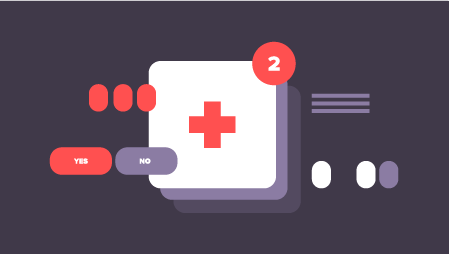Health system technology leaders found that digital health solutions, such as AI, are one of the most impactful health technology areas during the COVID-19 pandemic and in the future.
KLAS and the Center for Connected Medicine (CCM) recently released a report which found artificial intelligence (AI) to be one of the most promising emerging technologies in the next two years.
The report, Top of Mind for Top Health Systems 2021 noted that health system technology leaders found digital health solutions, such as AI, are one of the most impactful health technology areas during the COVID-19 pandemic.
Specifically, clinical decision support was the most common use area for AI (61 percent), followed by dictation assistant or transcription (50 percent) and diagnostic medical imaging (48 percent).
A smaller percentage of respondents reported that they used AI for bed management, device management, staffing, analytics and assessment, tracking ICD-10 codes to find at-risk individuals, and contact tracing.
Additionally, 44 percent of businesses believed that COVID-19 increased its AI focus and investment, researchers noted. And currently, AI is keeping patients engaged with their providers and focused on their individual health.
“COVID-19 has exposed a lot of the weak spots in our operations, data intelligence, processing, and workflows. For example, virtual health has given us more understanding of patient utilization. It has shown us that we need much better data intelligence,” a vice president of Revenue Cycle Operations said in the report.
Prior to the pandemic, many health systems found use cases for big data analytics.
Now, systems are looking into algorithm-driven tools, such as bots, business intelligence, and AI to drive efficiencies in operations, clinical decision-making, and visibility as the need for virtual care has increased dramatically.
Additionally, revenue cycle management and virtual assistant applications were the most common responses for areas of planned AI use in the future, researchers stated.
Although many health systems use their data for AI, over half use less than 20 percent of it. Researchers said that this is mainly because health systems generally use AI tools for specific use cases, not an enterprise-wide approach.
Notably, most healthcare organizations using AI technology leverage vendor-built solutions (70 percent). It is less common for organizations to develop these abilities on their own due to the complex process and overall cost, researchers explained.
In terms of specific use cases, 87 percent of virtual assistant use cases turn to vendor AI solutions. Over 80 percent of respondents also used vendor AI solutions for dictation assistant or transcription (85 percent), clinical decision support (82 percent), genomic analysis (80 percent), and revenue cycle cases (80 percent).
“AI is going to make a phenomenal difference in health care, but it will be effective in very specific, narrow use cases that are done well,” said a chief analytics officer. “I don’t believe we are just going to feed all our data into some supercomputer that will tell us what the future is.”
Finally, while most health systems are comfortable with the current level of data regulation, some are somewhat concerned that stricter policies could limit AI abilities, while others are concerned that data kept by their vendors is not secure.
Additionally, a small percentage of respondents expressed concern about the unknowns of machine learning and had questions about how data is used to inform decisions and if it could be used in a biased way.
“There are so many unknowns about machine learning that create challenges. One thing I am very concerned about is unintended biases within the algorithms; those could come from the original data sets or the programmers,” a chief medical information officers (CMIO) said in the report.





